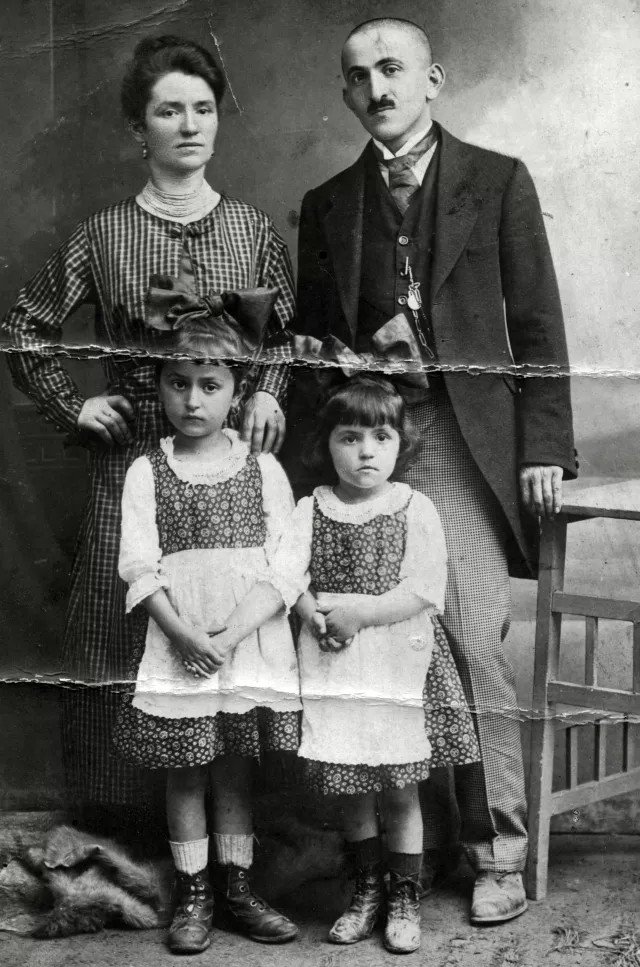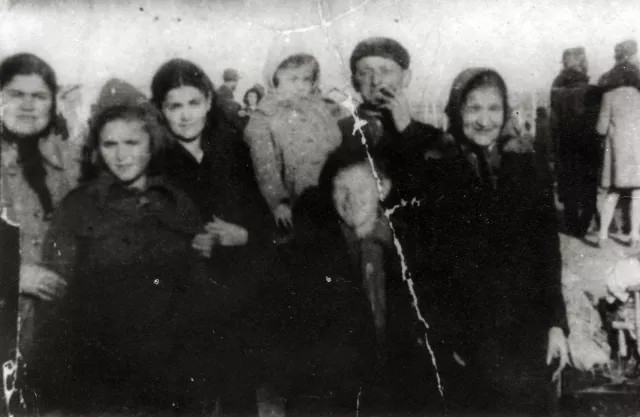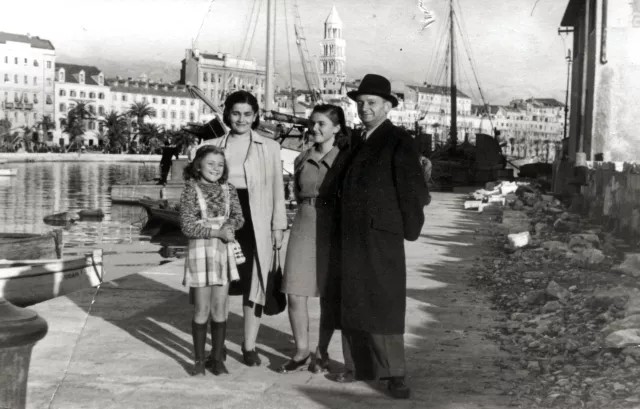Rifka Vostrel

Short summary
Rifka Vostrel was born in 1929 in Sarajevo, Bosnia and Herzegovina. Rifka's family history is deeply rooted in Sarajevo. Her paternal grandparents, Avram and Belja Altarac, were integral members of the Jewish community. Avram was a plumber and owned a shop, while Belja managed their home. Sadly, both perished in the Holocaust. On her maternal side, her grandmother, Lea Atijas, faced early widowhood and worked diligently to provide for her children. Rifka's childhood was shaped by the customs and community life characteristic of pre-war Jewish families in the region. Her family moved to Split, Croatia in 1934.

Rifka Vostrel (second to the left) with her family (1944)
The outbreak of World War II brought immediate and profound changes to Rifka and her family. As Jews, they quickly faced escalating restrictions and severe persecution. This period marked the dramatic shift from their relatively normal lives to a constant state of threat and fear under the oppressive wartime regime. Rifka's survival during the war was marked by her active involvement in resistance efforts. A crucial part of her strategy for survival was joining a Zionist cell, which likely offered a network of support and purpose. Subsequently, she joined the partisans, aligning herself with the armed resistance movement against the occupiers, a decision that proved vital for her endurance through the conflict.
After the war, Rifka embarked on a new chapter. She married Eduard Vostrel, and due to his diplomatic career, they lived in various locations. Her parents, who had also survived, moved to Zagreb, where her father became a respected cantor in the Jewish community. Both her parents passed away relatively young and are buried in Zagreb, signifying the end of their wartime ordeal and the beginning of a new, albeit challenging, post-war existence.





